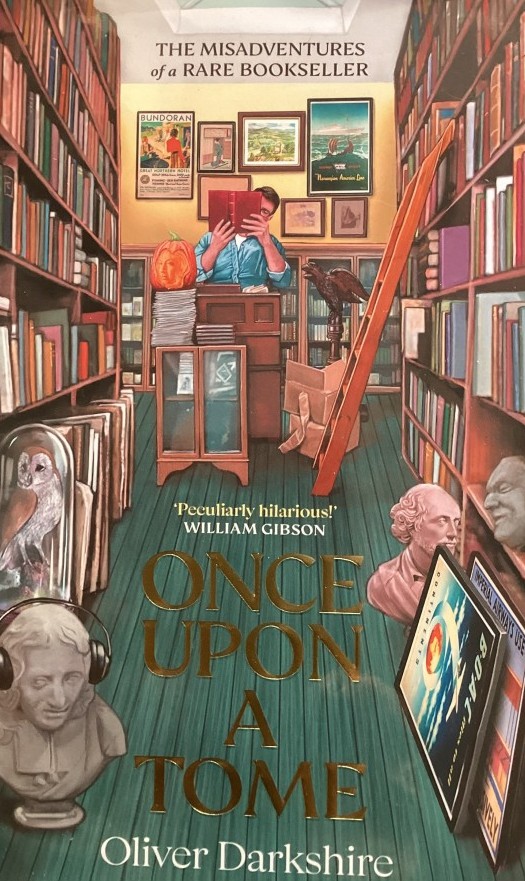Inspiring Older Readers
 posted on 03 Mar 2024
posted on 03 Mar 2024
Once Upon a Tome by Oliver Darkshire
OK. I acknowledge here and now that this is all my own fault. I seem to be in the grip of a sort of bibliophilic self-harm syndrome. I come across a book that’s subtitled ‘The Misadventures of a Rare Bookseller’ and I pick it up, shell out my money, take it home and end up disappointed. I should say from the outset that Oliver Darkshire's Once Upon A Tome is a perfectly serviceable example of its kind. But the truth is that I’ve now read so many examples of this type of book that the experience is becoming increasingly frustrating.
I’m starting to think that these books are written by reference to a formula or set of instructions. Its as if there is a writers' road-map that can be followed, a formula of ‘units’ that can be bolted together in whatever order suits:
Unit one: adopt an ingenuous, self-deprecating image for yourself. You’re an innocent set adrift in a world of madness but you know enough to be winking at your reader because they understand about the book world.
Unit two: make sure you have a list of assorted crazies who keep drifting into your shop and have some juicy anecdotes about them.
Unit three: have some fond memories of your equally crazy colleagues who share/thwart your workspace.
Unit four: it helps to be working in a building that’s falling down/too cold/full of mysterious cupboards with ‘things’ stuffed in them.
Unit five: have some examples of books you’ve traded in that have been epic mistakes.
Unit six: it’s vital to convey the message that you would be mad to want to enter this world but that you, the author, thrive there in spite of all the above.
Once all these are in place you have the standard formula and you can build your book. Of course, details of the actual shop you set at the heart of this prefabricated confection will vary and the character of the ingenue bookseller is likely to be either more or less loveable. Oliver Darkshire’s Once Upon A Tome constructs his version of this literary Mechano kit perfectly skilfully but there’s nothing here you wouldn’t be expecting.
Lord, what I wouldn’t give for a book about the book world that isn’t knowingly arch. A memoir of working in a bookshop where a joy of the books themselves is at the centre and we get an author who hasn't seemingly accidently fallen into the profession but tries to give a positive, enthusiastic version of bookselling. It doesn’t have to be po-faced but it can be engaging and serious.
What does a bookseller do all day? What wonderful books come across their counter? Who buys the more expensive books and how are they found? There must be someone out there to write this – someone prepared to abandon the tedious formula these books have fallen into replicating.
I promise here and now: I will read no more of these books!
Terry Potter
March 2024